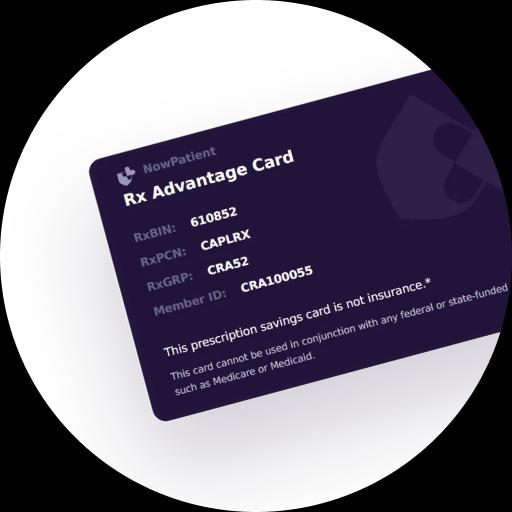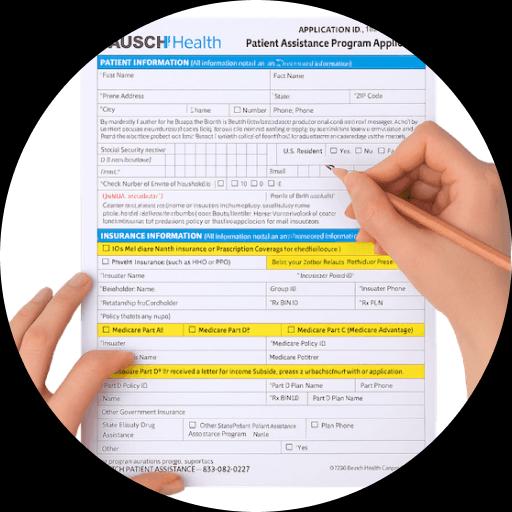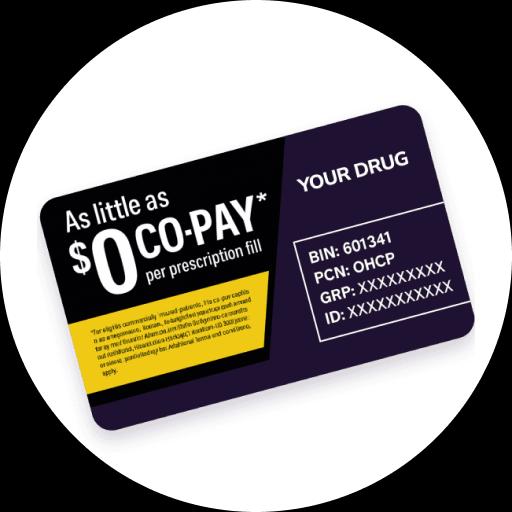Save on Glucobay with Coupons, Discounts & Savings Programs


Start Saving Today!
Lower the Cost of Your Glucobay Prescription
More great savings
View Related Generics
MEDICAL INFORMATION
Glucobay Key Facts
What is Glucobay?
Glucobay is the brand name for acarbose oral tablets.
What dosages is Glucobay available in?
Glucobay is available as a 50 mg and 100 mg oral tablet.
What is Glucobay used for?
Glucobay is an alpha-glucosidase inhibitor that is used to treat type 2 diabetes.
How does Glucobay work?
Glucobay temporarily blocks a protein called alpha-glucosidase, which slows down the digestion of carbohydrates in your gut. As a result, your body will absorb less sugar from the foods that you eat. And this leads to lower blood sugar levels after you eat.
How do I take Glucobay?
Glucobay is typically started at a low dose and then gradually increased. The average
adult dose is 100 mg Glucobay three times daily. A further increase to 200 mg Glucobay three
times daily may occasionally be necessary.
Is it safe for me to take Glucobay?
Glucobay is a safe and effective treatment when used for FDA licensed indications. However, like all medications, they may give you unwanted side effects. You should always discuss potential side effects with your physician to ensure the medication is suitable and right for you. You should not use this medication in the following.
Hypersensitivity to acarbose and/or any of the inactive tablet constituents, pregnancy and lactation.
Glucobay should not be used in patients under 18 years of age.
Glucobay is contraindicated in patients with severe renal impairment (creatinine clearance <
25 mL/min).
GLUCOBAY should not be used in patients with gastrointestinal disorders associated with
malabsorption. It should not be used in patients with inflammatory bowel disease, such as ulcerative
colitis and Crohn’s disease.
GLUCOBAY should not be used in patients with partial intestinal obstruction, or in patients predisposed
to intestinal obstruction or ileus.
Similarly, GLUCOBAY should not be used in conditions that could be aggravated by an increased
formation of intestinal gas (e.g. Roemhelds syndrome, major hernias, intestinal obstruction and intestinal
ulcers).
Glucobay Common Side Effects
- Common side effects of Glucobay:
- Excessive gas
- Diarrhea
- Stomach pain
Glucobay Serious Side Effects
Serious side effects are rare with Glucobay.
Effects of other drugs, drug classes and over-the-counter products on Glucobay
- The following medications may interact with Glucobay:
- Oral antidiabetic agents: When Glucobay is prescribed in addition to existing treatment with
- sulfonylureas, or metformin, the dosage of the sulfonylurea or metformin must be appropriately reduced
- should the blood glucose levels fall in the hypoglycaemic range. In individual cases hypoglycaemiarelated impairment of consciousness may occur.
- Neomycin: Due to neomycin-induced malabsorption of carbohydrate, concomitant administration of
- neomycin may lead to an enhanced reduction of postprandial blood glucose and to an increase in the
- frequency and severity of gastrointestinal adverse reactions. If the symptoms are severe, a temporary
- dose reduction of Glucobay may be warranted.
- Cholestyramine: The concomitant administration of cholestyramine may enhance the effects of
- Glucobay, particularly the reduction of postprandial insulin levels. If both Glucobay and
- cholestyramine therapy are withdrawn simultaneously, caution should be exercised as a rebound
- phenomenon has been observed in non-diabetic subjects.
- Digoxin: In individual cases, Glucobay may affect digoxin bioavailability, which may require dose
- adjustment of digoxin.
- Intestinal Adsorbents: On the basis of general considerations, the simultaneous use of intestinal
- adsorbents (e.g. charcoal), and digestive enzyme preparations (e.g. amylase, pancreatin) may reduce the
- effect of Glucobay and should be avoided wherever possible.
- Antacids: The concomitant administration of Glucobay and antacids does not alter the effect of
- Glucobay. The administration of antacid preparations is unlikely to ameliorate the gastrointestinal
- symptoms of Glucobay and therefore should not be recommended for this purpose.
Who makes Glucobay?
Bayer Healthcare
Is Glucobay safe in pregnancy?
Glucobay should not be administered during pregnancy as no information from controlled clinical
studies is available on its use in pregnant women.
What is the generic name for Glucobay?
Medical Disclaimer
NowPatient has taken all reasonable steps to ensure that all material is factually accurate, complete, and current. However, the knowledge and experience of a qualified healthcare professional should always be sought after instead of using the information on this page. Before taking any drug, you should always speak to your doctor or another qualified healthcare provider.
The information provided here about medications is subject to change and is not meant to include all uses, precautions, warnings, directions, drug interactions, allergic reactions, or negative effects. The absence of warnings or other information for a particular medication does not imply that the medication or medication combination is appropriate for all patients or for all possible purposes.
Related Conditions
OUR CUSTOMERS VIEW
What Customers Love About Our Service
We want everyone to be happy and healthy, that’s what keeps us going. Read what some of them have to say about us.
Medicines Experts
Meet Our Medical Team
We are a broad skilled and passionate group of clinicians with experience of operating in health systems in the United Kingdom & United States. Providing excellent care and advice is at the heart of everything we do. You can read more about our medical team by visiting the medical team page or learn more about how we curate content by visiting our editorial process


























